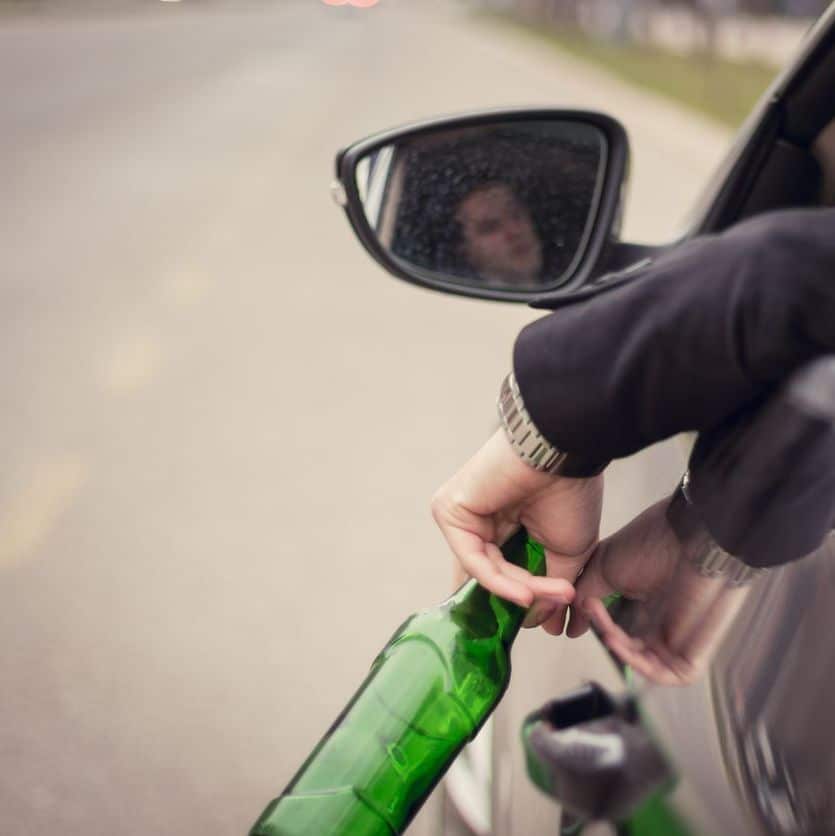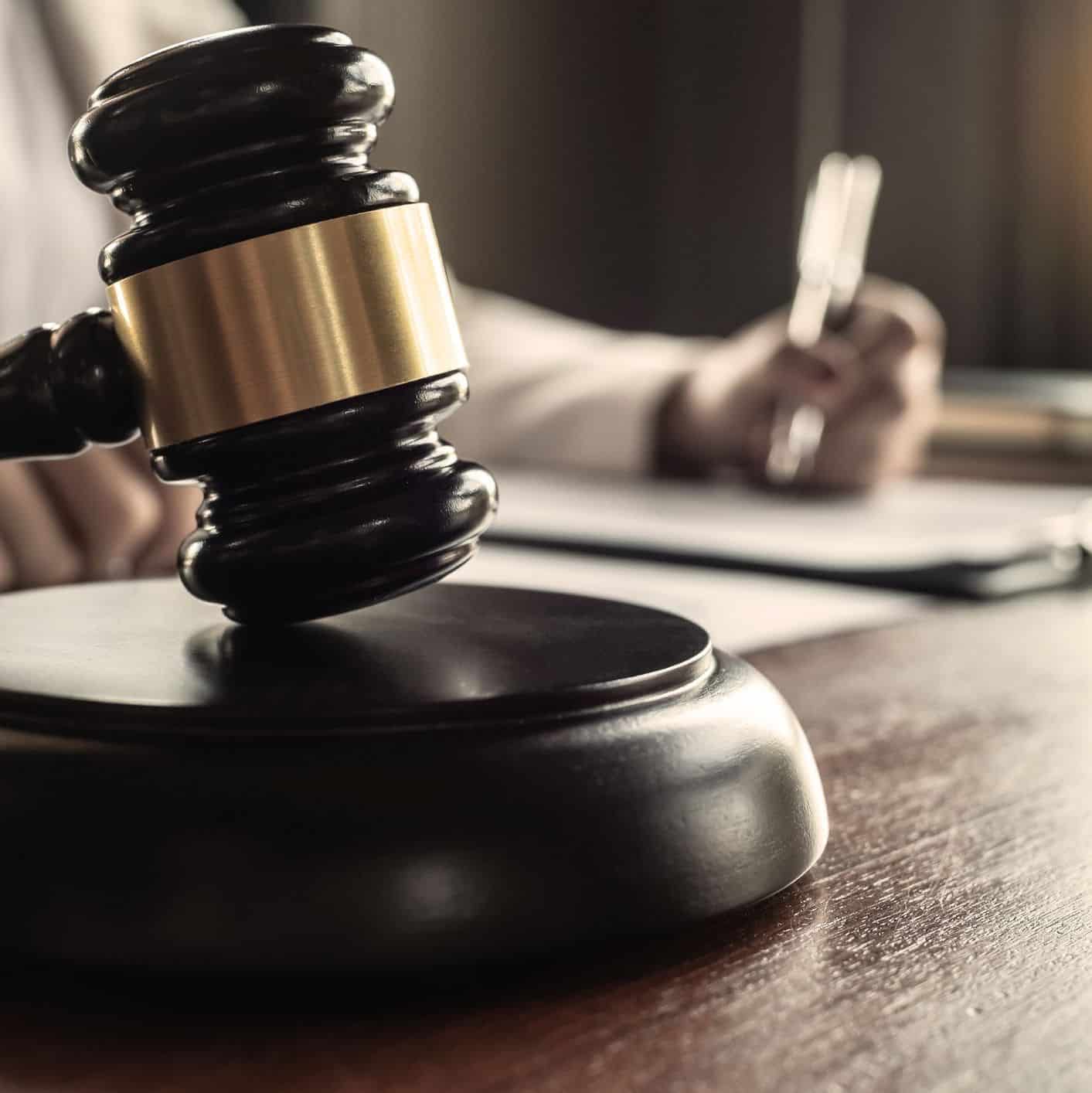Serious driving errors become more than simple traffic infractions when they cause deaths, and legal consequences are especially severe with the presence of intoxication. California motorists accused of fatal recklessness while under the influence often face charges of “vehicular manslaughter while intoxicated PC 191.5(a).”
This is one of the most serious offenses you can commit on the road, and it can put you behind bars for many years. Over a thousand DUI-related fatalities each year in California make this a grave responsibility for the criminal justice system – one that highlights the importance of effective legal representation.
If you have been accused of gross vehicular manslaughter (PC 191.5a), you have every right to defend yourself alongside an experienced DUI defense attorney in California. Contact Gressley & Donaldson to discuss your unique situation during a consultation and formulate a targeted defense strategy.
Gross Vehicular Manslaughter While Intoxicated: California Penal Code section 191.5(a)
Section 191.5(a) of the California Penal Code defines gross vehicular manslaughter while intoxicated. A motorist may be charged with this offense when they carry out the following acts:
- Drive under the influence
- Engage in gross negligence
- Cause a fatal traffic accident
If you have been accused of this crime, it is important to understand how California defines vehicular manslaughter. Generally speaking, manslaughter is an accidental killing. Although there are many potential examples of this, vehicular manslaughter involves traffic-related errors that lead to death. In California, motorists accused of manslaughter act “without malice,” which is another way of saying that they never intended to kill another human being.

Defining Gross Vehicular Manslaughter While Intoxicated
Various potential acts may fall under the legal definition of gross DUI manslaughter. The most obvious examples include traffic infractions, and PC 191.5(a) specifically includes any “unlawful act.” Note that this includes acts that California may not define as criminal offenses.
Many basic traffic infractions are “unlawful,” even though they fall under the jurisdiction of the Department of Motor Vehicles (DMV) rather than criminal courts. Unlawful acts can be anything “contrary to or outside the law,” and they may include infractions like speeding, expired registrations, or even parking citations.
Under normal circumstances, a traffic infraction can only lead to a fine in California. Add intoxication and fatality into the equation, however, and you face potential prison time under PC 191.5(a). Of course, more serious criminal defenses also satisfy the requirements of PC 191.5(a), including misdemeanors like reckless driving or exhibition of speed.
Another key element of this legal definition is proof of being under the influence of alcohol and/or a drug, and PC 191.5(a) specifically mentions Sections 23140, 23152, and 23153. These are underage DUIs, adult DUIs, drug DUIs, and DUIs causing injury, respectively. In addition to your fatal traffic violation, you must also commit at least one of these offenses to face charges under PC 191.5(a).
Note that there are many ways to commit these offenses. Perhaps most notably, you can be convicted of a DUI in California after drinking alcohol, consuming drugs, or combining various intoxicating substances. In addition, you can face a DUI in California with a BAC level of just 0.04 percent if you have a commercial driver’s license (CDL) and are operating a commercial vehicle at the time of the offense. Under Section 23140, a driver under the age of 21 can also face DUI charges with a BAC level of 0.05% or higher.
What Is Gross Negligence?
The existence of gross negligence is what makes 191.5(a) a more serious offense compared to a “standard” count of vehicular negligence while intoxicated (191.5(b)). While the latter involves only “ordinary negligence,” 191.5(a) involves gross negligence.
Putting aside additional labels, the basic definition of “negligence” is the failure to act in a reasonable manner. A reasonable motorist in California obeys the speed limit, keeps their eyes on the road, signals before changing lanes, and pays close attention to traffic signs. Motorists in California also owe each other a “duty of care,” which means that they should take reasonable steps to avoid harming anyone while driving. A motorist is negligent when they fail in this duty of care, and this usually involves honest (but dangerous) mistakes. If you act with this type of ordinary negligence, you will face penalties under 191.5(b).
However, some types of negligence are more serious and egregious than others. When the risk of serious injury or death rises dramatically, courts may define your traffic error as gross negligence. Generally speaking, gross negligence represents an “extreme departure” from reasonable behavior, and it typically involves complete disregard for human life.
Gross negligence goes far beyond honest mistakes, instead venturing into the territory of serious recklessness. This is nowhere near what a reasonable motorist would do, and it often involves deliberate or conscious decisions to act in an unsafe way. For a conviction under 191.5(a), the court must define your conduct as gross negligence.
Examples of Gross Negligence
The PC 192(c) provides a few specific examples of gross vehicular negligence. These examples include “motor vehicle speed contests,” “sideshows,” and speeding over 100 miles per hour. Here are a few additional examples:
- Street racing in a school zone
- Driving with a significantly elevated blood alcohol levels
- Driving a pickup truck fitted with a jet engine
- Intentionally ramming other vehicles
- Driving on the sidewalk
- Doing a donut in a crowded parking lot
While these are extreme examples, it is possible to face gross vehicular manslaughter charges for much less serious traffic offenses. These might include running multiple red lights, speeding, or driving the wrong way down a highway due to confusing signage.
Proving Gross DUI Manslaughter in California
Gross DUI manslaughter has several elements, and a prosecutor must prove the existence of these various factors to secure a conviction. Specifically, they must demonstrate to the court that you did the following:
- Committed a DUI offense
- Committed another unlawful act
- Acted with gross negligence
- Caused a traffic accident
- Caused the death of a human being
If the prosecutor fails to establish just one of these elements, you cannot face penalties under PC 191.5(a). Additionally, the prosecutor may need to show a connection, or a causal link, between some of these elements. Perhaps most importantly, your unlawful act must have led directly to a traffic accident, and this traffic accident must have caused someone’s death. On its own, your DUI offense is not enough to satisfy the definition of gross negligence.
Note that even if the prosecutor fails to establish all of these elements, you may still face various other charges. For example, you may still face DUI penalties even if your defense attorney proves that you did not cause the accident. Conversely, you may still face vehicular manslaughter charges if your attorney proves you were not intoxicated. If your attorney proves that you were not intoxicated and you didn’t cause an accident, however, you may avoid all criminal penalties.
Penalties for Gross Vehicular Manslaughter While Intoxicated
Gross vehicular manslaughter while intoxicated is one of the most serious traffic offenses you can commit in California, and the potential penalties are quite severe. It is a felony, and you face 4, 6, or 10 years in prison if convicted. Unlike the lesser charge of vehicular manslaughter while intoxicated, this is not a wobbler offense, and if convicted, you will always face a prison sentence instead of a jail sentence.
In addition, you face heightened penalties if you have certain prior convictions on your record. These include any prior convictions under PC 191.5, including both sections (a) and (b). A prior conviction of gross vehicular manslaughter (without intoxication) will also heighten penalties, as will any type of vehicular manslaughter involving a boat. Perhaps most notably, most prior DUI convictions (including standard DUIs and DUIs causing injury) will make your penalties worse under PC 191.5. If any of these prior convictions apply to you, a maximum prison sentence of 15 years is possible.

Legal Defenses to PC 191.5 Charges
With such severe potential penalties, it is important to consider every possible defense strategy. To identify the most appropriate strategy based on your unique circumstances, it makes sense to consult with a qualified lawyer in California.
You Were Not Intoxicated at the Time of the Incident
If you successfully establish that you were not intoxicated at the time of the incident, you cannot face penalties under PC 191.5(a). With this approach, you will rely on standard DUI defense strategies that call into question evidence of your intoxication. Most DUI arrests involve alcohol testing methods, such as the Breathalyzer device, blood tests, or urine tests. All of these tests have the potential to provide inaccurate results, especially when officers and labs fail to follow very specific protocols.
For example, the arresting officer may not have carefully calibrated their Breathalyzer device before administering the breath test. The officer might not have been properly trained to administer the test, and they may have made serious mistakes. Sometimes, officers rely on Field Sobriety Tests (FSTs) to gather evidence of intoxication. These tests are highly subjective, and even the National Institute of Justice has concluded that they are often completely unreliable. Challenging this evidence may be even easier after alleged intoxication by drugs, as testing technology is mostly geared toward alcohol.
If you manage to prove that you were not intoxicated at the time of the incident, you may still face charges under PC 192(c), which lays out penalties for “standard” vehicular manslaughter (without intoxication). Although these penalties are still serious, gross vehicular manslaughter is a “wobbler” offense – resulting in either misdemeanor or felony charges. If you are charged with a misdemeanor under this section, you face a maximum of one year in jail. This could represent a positive outcome compared to the maximum prison sentence of 10 years under 191.5(a).
You Did Not Act with Gross Negligence
If you successfully establish that you did not act with gross negligence, you will avoid penalties under 191.5(a). The line between “ordinary negligence” and “gross negligence” is blurry and subjective. Your attorney may argue that your traffic error represents an honest mistake rather than an act of serious recklessness.
You may need to use compelling evidence to establish that your unlawful act did not represent an “extreme departure” from what a reasonable driver would have done in your situation. For example, surveillance footage might show that you did not attempt to show off while “drifting” around a corner at a high speed, but that you merely lost tire traction after hitting a puddle.
Note that even if you manage to establish that you acted with “ordinary negligence” instead of “gross negligence,” you will still face penalties under 191.5(b) – vehicular manslaughter while intoxicated. However, this a wobbler offense that could potentially end with a lower maximum misdemeanor penalty of one year in jail.
Your attorney may also establish that you did not act with any degree of negligence, potentially reducing penalties dramatically. For example, prosecutors might argue that you acted with gross negligence when you sped through an intersection, ran a red light, and struck a pedestrian. They may point to tire marks at the scene of the accident to establish that you were driving at an excessive speed prior to the collision.
In response, your attorney might point to surveillance footage that shows you approaching the intersection at a normal speed. The footage may also show that the light was actually yellow instead of red. Finally, your attorney could prove that the pedestrian was jaywalking at the time of the accident, and that they ran into the road with absolutely no warning. As a result, the court may have no choice but to drop all vehicular manslaughter charges and instead pursue a basic DUI conviction.
Your Negligence Didn’t Cause the Victim’s Death
Remember, prosecutors must establish a clear connection between your negligence and the victim’s death. You may have committed a traffic infraction, but this might have had nothing to do with the fatality. For example, you may have veered out of your lane while street racing – grazing another vehicle in the process. Due to a complete coincidence, a third vehicle might then crash into a utility pole – killing the driver.
After arriving at the scene, police may assume that there was some kind of connection between your collision and the fatal crash. If your attorney can establish that this causational link does not exist, however, you will not face penalties for gross vehicular manslaughter while intoxicated. Note that you may still face DUI-related charges.
You Were Facing a Sudden Emergency and Acted Reasonably Under the Circumstances
Under PC 191.5(a), you are legally allowed to drive in a reckless, negligent manner when there is some kind of emergency. In other words, a reasonable person is not expected to calmly obey traffic laws in certain situations. For example, your family member may be suffering from a gunshot wound in the back seat, and you may be speeding toward a hospital before they bleed out. You may have no other choice but to get into your vehicle after drinking that night.
Another example might involve a mechanical issue – such as an engine fire. With smoke emanating from the hood of your vehicle, you may need to drive at a dangerously slow speed on a highway – or swerve wildly to avoid collisions due to poor visibility. In these emergencies, the normal definition of gross negligence does not apply.
Additional Charges
Motorists in California may face various other charges in addition to gross DUI manslaughter. These potential charges include the following:
- Vehicular Manslaughter While Intoxicated PC 191.5(b). A standard charge of vehicular manslaughter while intoxicated is a wobbler offense that may result in misdemeanor or felony charges. If convicted of a misdemeanor, you face up to one year in jail. If convicted of a felony, however, you face 16 months, two years, or four years in prison.
- Vehicular Manslaughter or Gross Vehicular Manslaughter PC 192(c). Standard vehicular manslaughter with no intoxication is a misdemeanor that carries a maximum jail sentence of one year. Gross vehicular manslaughter, on the other hand, is a wobbler offense that can result in a felony with up to six years in prison.
- DUI Murder/Watson Murder. A Watson Murder or DUI murder is equivalent to second-degree murder in California. This charge is quite rare, and it generally affects those who have multiple prior DUI offenses on their record. The maximum prison sentence for second-degree murder in California is life.
No matter what charges you’re facing, it benefits you to speak with a dedicated legal expert. Luckily, you don’t have to look too far for top-tier representation.
Gressley & Donaldson: DUI Defense Attorneys in California
Remember: If convicted of gross vehicular manslaughter while intoxicated PC 191.5(a), you could spend a decade in prison. With stakes this high, it makes sense to work alongside an experienced, qualified criminal defense attorney in California to formulate an aggressive defense strategy. Contact Gressley & Donaldson today for the legal guidance you need.

Frequently Asked Questions
Gross vehicular manslaughter occurs when a driver causes a death through gross negligence while DUI, as defined under California Penal Code 191.5(a).
A DUI that results in death can lead to felony gross vehicular manslaughter charges, which carry more severe penalties than standard DUI causing injury and vehicular manslaughter while intoxicated with ordinary negligence.
Penalties include 4 to 10 years in state prison, fines, mandatory DUI programs, license suspension, and restitution to victims’ families.
PC 191.5(a) addresses gross vehicular manslaughter while intoxicated (felony), whereas VC 192 involves involuntary manslaughter due to reckless driving without DUI.
First-time offenders are still facing up 10 years in state prison. If more than one person was killed, or others were injured, the exposure increases beyond 10 years in state prison.
Investigations include securing the scene, collecting evidence, interviewing witnesses, performing toxicology tests, and preparing traffic collision reports that include analyzing electronic data recorders from the vehicles involved in the collisions.
License suspension is 3 years. The DMV can also take independent action that can result in suspension.
Criminal liability involves prosecution and potential prison time, fines, while civil liability allows victims’ families to pursue financial damages.
Prosecutors present evidence of gross negligence and DUI impairment, accident reports, witness statements, toxicology results, and police observations to establish culpability.
Defenses include challenging chemical test accuracy, disputing accident causation, search and seizure issues, challenging the DUI investigation, and challenging alleged drug and alcohol impairment.
Yes. Effective legal defense may lead to reduced charges, and plea agreements.
Both alcohol and drug impairment can result in felony charges. The type and level of impairment influence evidence and sentencing.
Yes. Persons with prior DUIs that cause a death while DUI will be charged with murder in violation of Penal Code 187. This is commonly referred to as a Watson murder charge in California, and carries 15-years to life in the state prison.
An attorney can challenge prosecution evidence, represent clients in court, negotiate plea deals, take the case to trial, and ensure protection of legal rights throughout the case.
Outcomes include acquittal, reduced charges, felony conviction with prison time, probation, fines, license suspension, and civil liability for damages. Gressley & Donaldson, LLP are one of the few firms in Southern California to secure a complete acquittal in a gross vehicular manslaughter case.


